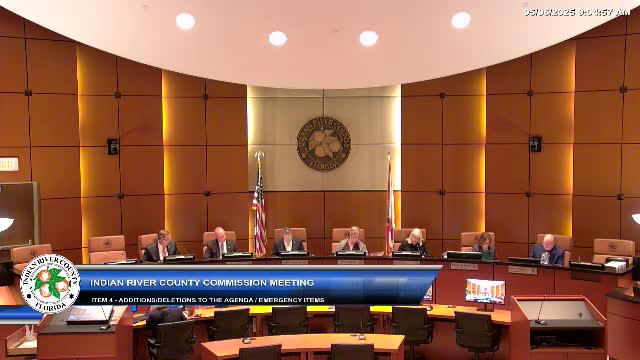Article not found
This article is no longer available. But don't worry—we've gathered other articles that discuss the same topic.

Commissioners adopt multiple May proclamations and present APWA top-10 award to county public-works director

Utility Services briefed commissioners on 20-year Integrated Water Master Plan progress

County directs staff to review food-truck rules after disputed citation; staff to return with options

County outlines universal curbside collection plan: new carts, weekly service and $182 annual cost forecast

